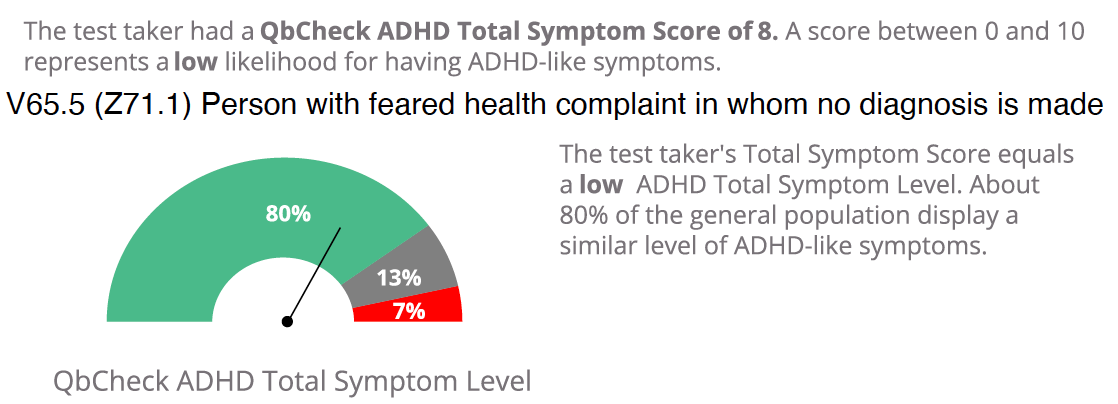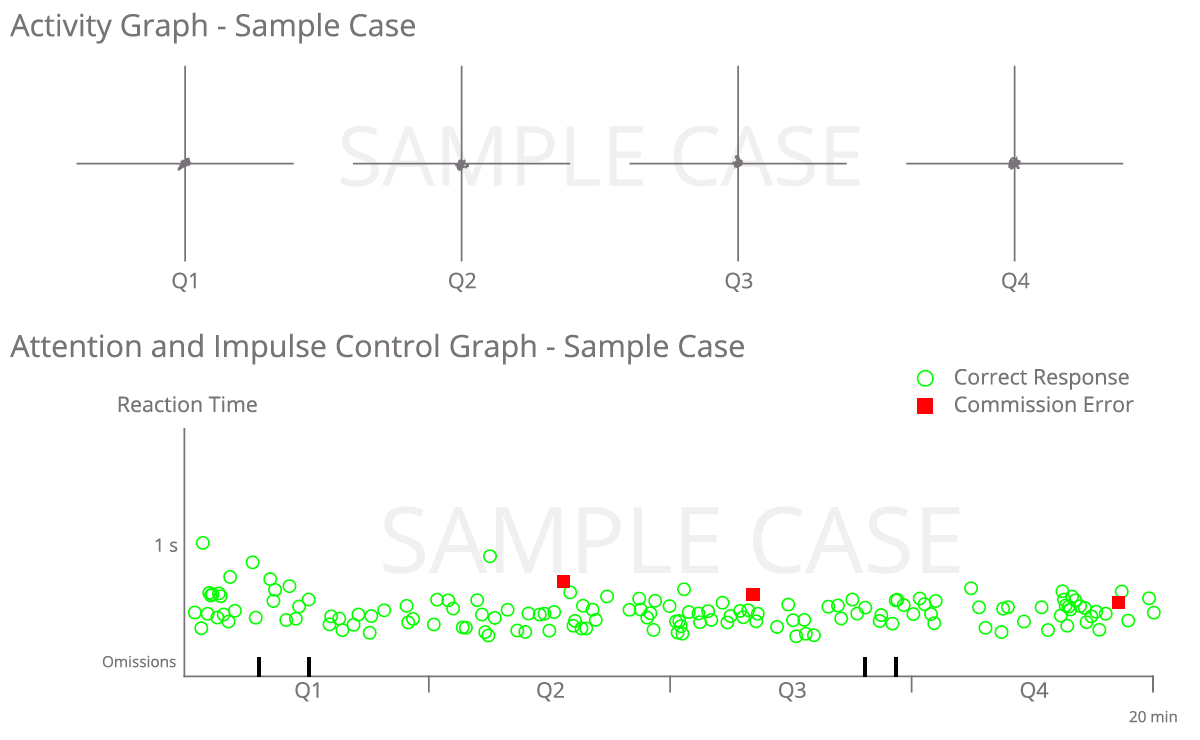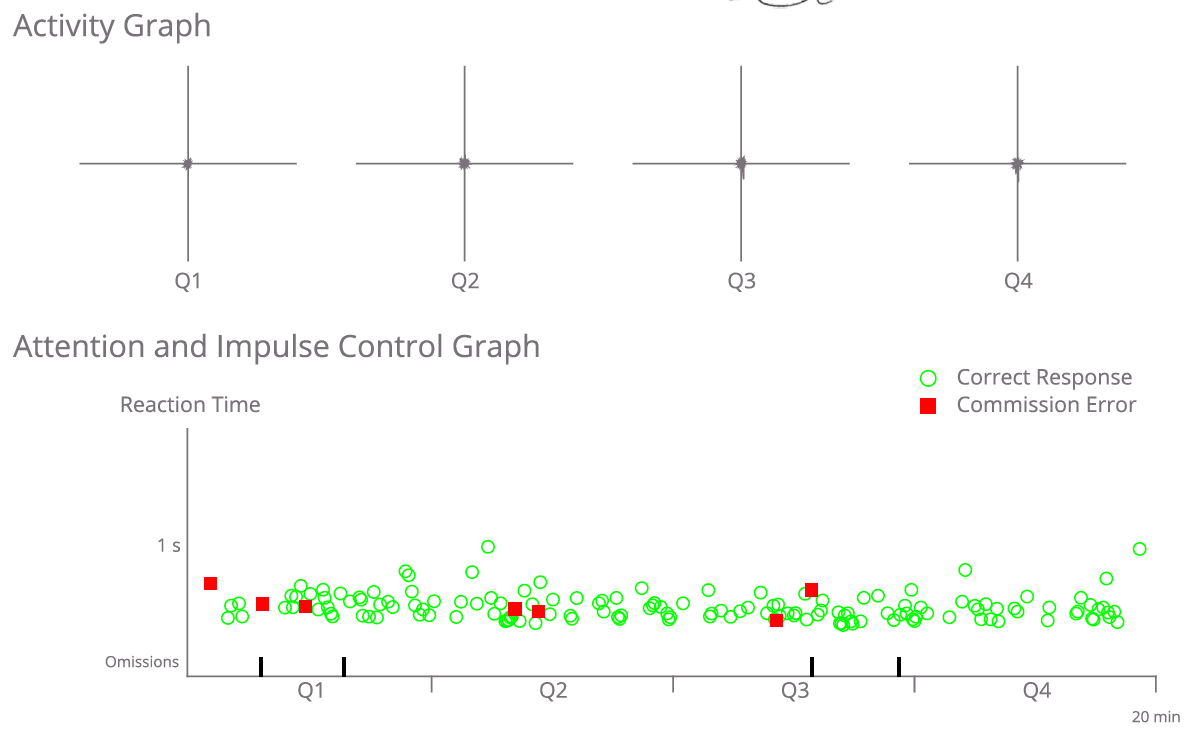
What I Learned Getting Tested for ADHD
For a couple of years now, I suspected that I may have ADHD Predominately Inattentive (ADHD-PI). I’ve never been hyper, or energetic in general, so I never gave ADHD much thought in the past. But I first suspected it while reading a Hacker News thread of programmers with ADHD, describing their various non-pharmaceutical interventions that they use to manage their work and lives. It struck me that many of their coping strategies were things I did too. I’m forgetful, so I write todo lists, checklists, and other reminders. I’m distractable, so I wear noise-cancelling headphones and block out external stimuli whenever I can. I forget about things without environmental triggers, so I leave dumbbells lying around so I remember to exercise. My mind wanders in conversation, so I prefer instructions in writing. Nearly every response I read made me think, “Huh, that sounds like me.” Did I have ADHD and not know it? Had I learned to do all of these things as a coping mechanism without realizing what I was trying to fix?
Given these perceived deficits and the behaviors I adopted around them, I decided to get properly tested.1
First Evaluation
After an extremely boring 20 minute n-back test, I finally had hard data about my likelihood of having ADHD.
The data suggested that I do not have ADHD.

The test itself involved watching a series of colored shapes pop up briefly on a screen. I had to hit the spacebar if the same color and shape showed up twice in a row. My webcam was monitoring eye movement during the test as well, looking for signs of distraction. Despite being excruciatingly dull after only a few seconds, I somehow managed to stay focused on the task.

Statistics for my performance. I was much higher on impulsivity measures than I would’ve guessed going into it, but my reaction speeds are good. Makes me wonder if a lifetime of trying to time button presses in video games contributed to this score.
I was a bit more impulsive (hitting the spacebar when I shouldn’t have) than average, but also quicker than average. I’m not sure how a lifetime of playing video games would affect my performance—supposedly not at all, but I’m not fully convinced.
The overall distribution of correct answers and errors was very much in line with the given sample case.


The differences between the sample results (left) and my actual results (right) are minimal.
The psychologist, upon reviewing my test results with me, put it this way: “I think you’re just a smart guy who gets impatient with the slow pace of things. And you’re probably too hard on yourself about what you expect to get done.”
He may be right. I can be extremely impatient at times. I listen to podcasts and YouTube videos at more than 2x speed, I mostly skim while reading, and I hate standing in lines. And I’m definitely hard on myself, feeling like I should accomplish more than I do.
I told all of this—my test results and the doctor’s interpretation—to a friend of mine with an ADHD diagnosis. His first reaction was: “…kinda sounds like ADHD”. He also said that his testing took 4 full hours and included many more types of evaluation than n-back. I’m now wondering if my test was too calibrated to specific aspects of ADHD that I don’t display. Some of my data look borderline, and I still identify with many of the DSM-V crieria for ADHD-PI. I’m debating whether I should take a more rigorous test.2
In any case, I’ll keep writing todos and checklists.
Second Evaluation
When I took my first test, I was working in a job that I’d been doing for a while. I’d gotten into a groove and wasn’t feeling especially challenged anymore. Shortly after publishing this post for the first time, I switched jobs—and was confronted with way more challenge than I’d faced in years.
And I muddled through! For a while, anyway…
As time went on, I became more and more aware that I wasn’t performing as well as I thought I could have. I noticed my distraction. I noticed how hard it was to be present in meetings. I noticed that others in similar roles and life circumstances seemed to be more consistently productive. So I decided it was time to get tested again, more thoroughly this time.
In late 2022, I brought up my concerns to my primary care doctor. She referred me out to a local psychologist who performed a much different sort of test. This was no dual-n-back. It was over an hour’s worth of questions, puzzles, attention tests, memory tests, and all sorts of things. I could tell I was good at parts of it, but struggling in others—especially remembering lists of things. When it was over, I went home and spent about a month waiting for a report of my results.
These results also surprised me, but in entirely new ways!
Though Mr. VanAntwerp clearly has access to many of his cognitive skill sets, this test battery raises some significant concerns in functioning. Mr. VanAntwerp’s responses to this test battery reflect an inter-test variability. On most measures that required the ability to pay close attention to the details and executive functions (mental flexibility, shifting between tasks, time management, stress tolerance, planning/organization), his performance appeared to be a relative weakness and significantly below expectation compared to other areas of his functioning. He reported that tasks that required him to listen and remember things were more challenging. These issues appear to impact most areas of his thinking and are consistent with his experience in his daily functioning. The problem does impact his ability to effectively work with information in all settings in his life.
Diagnostic Impressions:
F90.8 Attention Deficit Hyperactivity Disorder, inattention, unknown age of onset
F39 Unspecified Mood Disorder (symptoms of depression and anxiety)
Ok, this part isn’t shocking. Yes, I have ADHD! I wasn’t just imagining that I had executive dysfunction! And also, I guess, some depression and anxiety—but I think that’s mostly tied to the fact that the ADHD is making life hard.
But this next part was a surprise:
Mr. VanAntwerp displayed symptoms that may also be consistent with individuals who have high functioning Autism Spectrum Disorder. Due to many overlapping signs and symptoms between ADHD and autism, he may benefit from getting an autism spectrum evaluation to rule in or rule out the diagnosis. More than half of individuals on the autism spectrum have symptoms of ADD or ADHD (e.g., difficulty settling down, social awkwardness, impulsivity, the ability to focus only on things that interest them, etc.), as well as disruptive mood dysregulation (most commonly found in individuals with autism; 45%). Individuals with autism or a spectrum disorder will have changes in visual processing which manifest as vision problems.
I had not seriously considered autism spectrum disorder. I don’t feel austistic, whatever that means. But I didn’t think I was ADHD either until I read more about the experiences of people with ADHD, and realized it overlapped a lot with my own.
I don’t know that I will follow up on an ASD evaluation, though. I mean, with ADHD, there’s medication to ameliorate the symptoms. But what would I do with an ASD diagnosis? Is there a (legal, prescribed) drug for social awkwardness? A pill to make loud noises not seem so bad?
For now, I’m just going to shrug and say, “Yeah, I can be a little ASD sometimes,” and not really worry about it.
Medication
Diagnosis of ADHD in hand, it was time to actually try pharmacological treatment. The system for doing this is definitely not designed by people who themeselves suffer from ADHD. I almost got stuck at this stage!
The psychologist said that I needed a psychiatrist for a prescription of stimulants, and gave me a list of nearby options. I wasn’t keen on getting a psychiatrist. I don’t doubt the value of therapy, but it wasn’t something I felt like I needed just then. Not to mention, it would add a lot of time and expense to the process. But, still, this was the process, so I started researching my options.
And oh my…
Just about everyone on the list was badly rated online, didn’t take insurance, and had offices in inconvenient locations. I started looking for psychiatrists not on the list to see if I could do better, but I could not. I was feeling despondent. I did not like my options.
But then, I wondered, “surely with a proper diagnosis, there must be some telemedicine option”. So I started Googling, and found out there are several such options! I’m not sure how long these companies have been around—it might’ve started with COVID making normal doctor visits impossible anyway. But I decided I would try one of these companies to see if it worked well for me.
Instead of talking with a psychiatrist, I was paired with a nurse practioner. Which worked just fine for me, because, again, I wasn’t interested in what I felt like was a long and needless chat on a regular basis. My NP recommended I start treatment with a 30mg dose of Vyvanse taken on work days.
Vyvanse is like Adderall, the more well-known ADHD drug, but for chemical reasons it has extended release properties. It’s supposed to have a longer, smoother effect.
I had to submit evidence of normal blood pressure and a normal EKG before getting prescribed, which wasn’t was cumbersome as it sounds. Not only can you get a cheap blood pressure cuff online, but you can also get small and relatively affordable EKG devices that sync to your phone. After submitting my normal tests, I just had to pick up my prescription at the local pharmacy.
My first day on Vyvanse was euphoric and unnerving. The physical sensation was like coffee jitters turned up to eleven. I thought for sure I would have a heart attack, though my new blood pressure cuff and EKG both said I was totally normal. But the new-found energy was intense, and I felt so very wonderful despite the physical side effects. I felt alert, I could pay attention to things, and I could work without distraction. Where normally I’d feel so tired in the mid-afternoon that I was nearly useless, I didn’t feel tired at all.
The jittery symptoms eventually faded after a couple of weeks. I also experienced some coldness/tingling/numbness in my fingers in the first month or so, but that too faded with time. It’s been several months now that I’ve taken the Vyvanse on work days, and I’ve become fairly used to it. The effects are less noticeable, and it no longer prevents afternoon sleepiness, but I still focus much better when I taken it than when I don’t. It’s made work much easier, and I wonder now where my life would be if I’d had this tool a decade ago.
It’s taken years to get from “Do I have ADHD” to “Yes, and here’s proper treatment.” I wish I’d made this journey faster. I wish somebody had noticed something sooner and pointed it out. But I’m just happy that I’m finally feeling capable. I’m so aware now of just how scatter-brained I’ve been for most of my life, now that I have the pharmacological option to stop. It’s not the same as just not having ADHD, but it’s a better place to be than where I was.